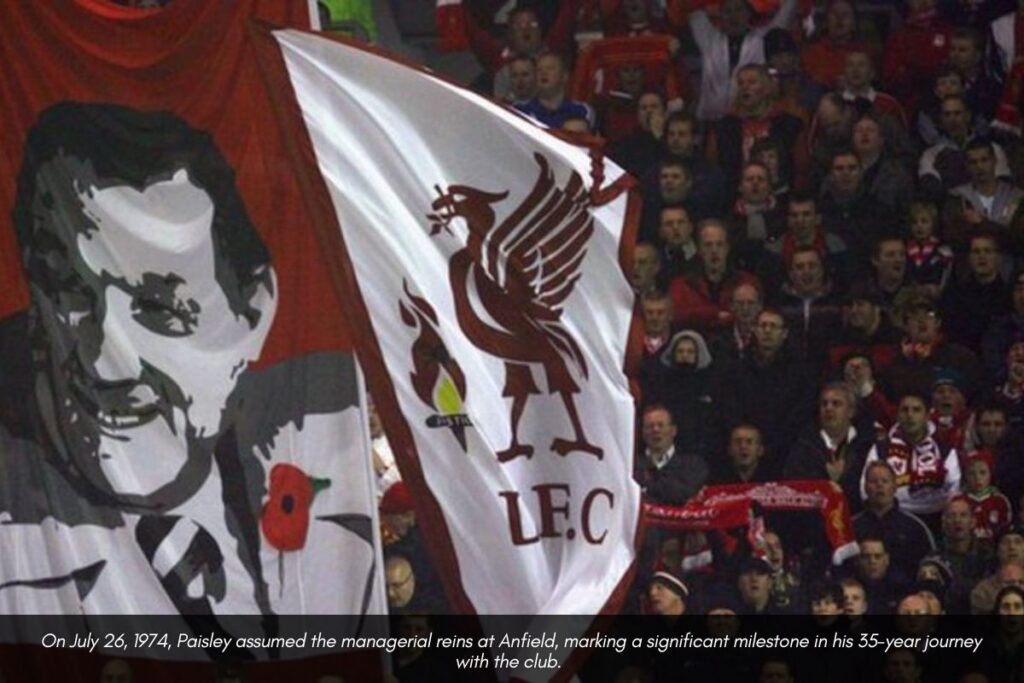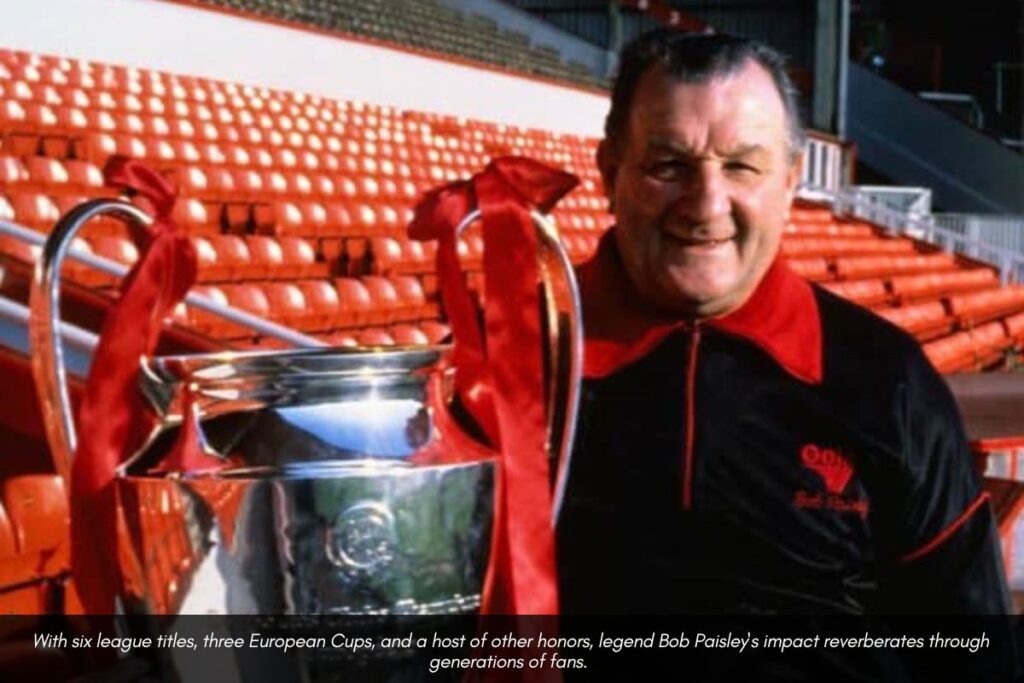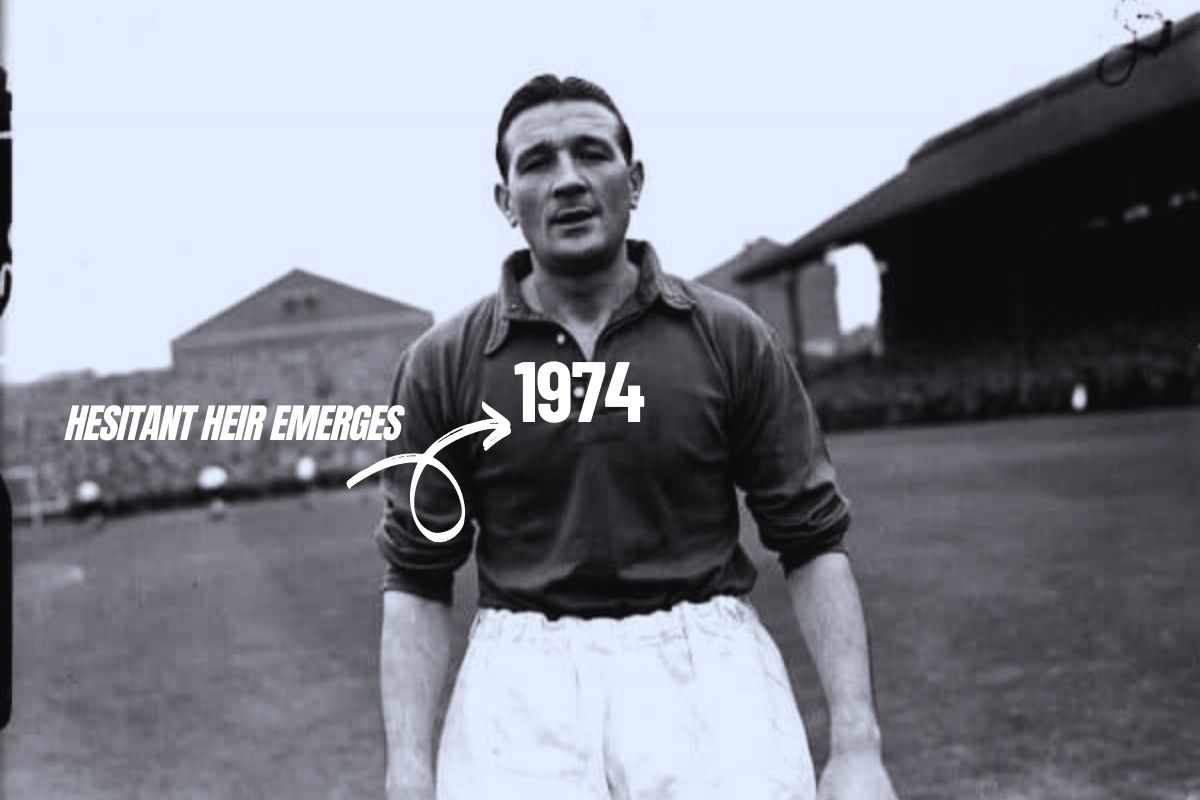After a decade and a half as Bill Shankly’s trusted confidant, legend Bob Paisley reluctantly ascended to the managerial throne, leaving an indelible mark on football history. Paisley’s journey with the Reds began in 1939, interrupted by wartime service, before resuming triumphantly with a First Division title in 1947. Transitioning from player to manager seemed inevitable, but his path took detours through physiotherapy, reserve team coaching, and finally, first-team training.
The arrival of Bill Shankly in 1959 reshaped Liverpool FC, propelling Paisley into the assistant manager role. His tenure as Shankly’s deputy culminated in an unexpected promotion to the top spot in 1974 when Shankly retired. Despite his immense contributions, Paisley hesitated to fill Shankly’s shoes. The sudden retirement of his mentor, after a successful tenure yielding three league titles, two FA Cups, and a UEFA Cup, caught him off guard. Former Liverpool executive Peter Robinson revealed the persuasion required to convince Paisley to accept the position, stating, “The chairman, directors, and I had to persuade him.”
What did Bob Paisley do For Liverpool?
Known for his reserved nature and aversion to the limelight, legend Bob Paisley preferred to let his accomplishments speak volumes, quietly perfecting his craft away from prying eyes. However, the relentless scrutiny of the media demanded his emergence from the shadows, a daunting prospect he likened to steering Queen Elizabeth through a tempest. On July 26, 1974, Paisley assumed the managerial reins at Anfield, marking a significant milestone in his 35-year journey with the club. The shadow of Shankly’s legacy loomed large, casting doubts on Paisley’s ability to fill such formidable shoes. Despite a trophy-less inaugural season, legend Bob Paisley’s subsequent eight-year tenure witnessed unparalleled success.

Under his stewardship, Liverpool not only dominated English football but also conquered Europe, clinching the coveted European Cup thrice, a feat unmatched until 2014 and 2018 by Ancelotti and Zidane, respectively. Paisley’s astute eye for talent, evident in his knack for plucking players from obscurity, became synonymous with his managerial prowess.
The likes of Dalglish, Hansen, Souness, Rush, Kennedy, Whelan, and Lawrenson, all recruited during his tenure, etched their names into Liverpool’s storied history. Paisley’s departure in 1983 marked the end of an illustrious nine-year managerial reign, adorned with an impressive array of trophies. Yet, his dedication to Liverpool endured, transitioning seamlessly into a directorial role and passing on his wealth of knowledge to successors like Dalglish, ensuring his legacy remained integral to the club’s fabric.
Legend Bob Paisley v Bill Shankly
Shankly and Paisley embodied contrasting personas and skills, yet their collaboration was symbiotic. According to legend Bob Paisley’s biographer John Keith, while Shankly’s presence was marked by steel-tipped shoes signaling his approach, Paisley preferred the subtlety of carpet slippers. Transitioning into management, Paisley openly acknowledged his struggle with verbal expression, allowing journalists to complete his thoughts. Alan Kennedy, a left-back under Paisley, highlighted his predecessor’s ruthlessness, a trait Shankly lacked. Paisley, drawing from Shankly’s cautionary tale of retaining an aging squad, swiftly rejuvenated Liverpool after their 1981 European Cup triumph.
This overhaul saw the departure of stalwarts like Clemence, McDermott, and Johnson within a year. Phil Neal, a right-back with numerous accolades under Paisley, praised his knack for uncovering hidden talents. Notable signings included Whelan from Home Farm, Rush from Chester, and Grobbelaar from Vancouver Whitecaps. Moreover, legend Bob Paisley’s shrewdness was evident in the profitable transfer of Dalglish following Keegan’s departure. Neal recalled Paisley’s astuteness, turning a £60,000 profit on Dalglish’s acquisition from Celtic after Keegan’s move to Hamburg. Their contrasting yet complementary approaches shaped Liverpool’s golden era, underscoring the enduring legacy of both men.
Paisley’s Career Timeline
Succeeding Shankly was no easy feat, yet under Paisley’s leadership, Liverpool’s dominance transcended English football to conquer Europe. In his sophomore season, Paisley clinched the UEFA Cup, setting his sights on the ultimate prize. The subsequent campaign witnessed Liverpool’s maiden European Cup triumph, a historic 3-1 victory over Borussia Monchengladbach in Rome.
Legend Bob Paisley Journey Unfolds
- In May 1939, he penned a professional contract with Liverpool.
- Joining the 73rd Regiment of Royal Artillery in October 1939, he served as an anti-tank gunner.
- March 1954 marked his final match for Liverpool, concluding with a 1-0 defeat against Sheffield United.
- Transitioning to coaching, he assumed the role of Liverpool’s reserve coach in April 1954, leading them to their inaugural Central League title in April 1956.
- July 1974 marked his ascension to Liverpool’s managerial helm, succeeding Shankly.

Paisley’s managerial tenure brimmed with triumphs:
- Securing the League and UEFA Cup double in May 1976.
- Notching Liverpool’s inaugural European Cup victory in May 1977, alongside a League triumph.
- Becoming the first English manager to retain the European Cup in May 1978.
- Securing his third League title in May 1979, followed by a fourth in May 1980.
- Masterminding Liverpool’s third European Cup conquest in May 1981, defeating Real Madrid 1-0.
- Securing a fifth League title with a dramatic final-day victory over Tottenham in May 1982.
- Announcing his retirement in August 1982, culminating in a League Cup victory over Manchester United in March 1983.
- Paisley’s final season concluded with a sixth League title, marking the culmination of his illustrious managerial career in May 1983.
During his sole visit to Rome in 1944, legend Bob Paisley participated in the liberation of the Eternal City as a gunner in the Eighth Army, a memory he humorously invoked before Liverpool’s victorious 1977 European Cup final. This triumph was followed by two additional European Cup triumphs in 1978 and 1981. Until Ancelotti’s 2022 Champions League triumph with Real Madrid, Paisley stood as the sole manager to claim three European Cup/Champions League titles. Moreover, he achieved this remarkable feat solely with Liverpool, a testament to his managerial prowess and the era’s stringent qualification criteria.
Legend Bob Paisley’s inaugural signing from Northampton in 1974, noted the significance of his achievement, accentuated by the stringent qualification standards of his time, contrasting them with the modern era’s more lenient criteria.
Conclusion
In the annals of football history, legend Bob Paisley’s legacy stands as a testament to unwavering dedication, astute leadership, and unparalleled success. From humble beginnings to the pinnacle of European glory, his journey epitomizes the essence of Liverpool Football Club. With six league titles, three European Cups, and a host of other honors, legend Bob Paisley’s impact reverberates through generations of fans. His remarkable achievements serve as a timeless inspiration, reminding us that greatness knows no bounds when fueled by passion, perseverance, and a profound love for the beautiful game. Bob Paisley: a name etched in football folklore for eternity.
Read all other posts on legend Bob Paisley
Find the Latest News on Player Ratings | Transfers | Prematch | Postmatch
Stay tuned for more updates on Liverpool FC Times and Stories. Your thoughts are always welcome in the comments section. Thank you for your continued support!
YNWA (You’ll Never Walk Alone)!
The Liverpool FC Times Team
LiverpoolFCTimes.com
